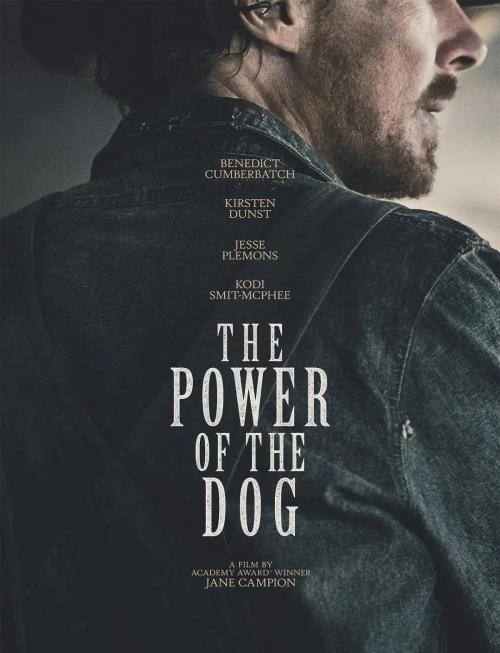The film "The Power of dogs" is based on Thomas Savage's novel of the same name, directed by New Zealand female director Jane Campion, starring Benedict Cumberbatch, Jesse Premont, Kxtin Dunst and other powerful actors. The film was nominated for the Golden Lion Award for Best Picture at the 78th Venice Film Festival and eventually won the Silver Lion Award for Best Director.

Interestingly, this somewhat dull and obscure literary and artistic film first entered the field of vision of domestic audiences, not because its director, Jane Campion, had directed the famous "Piano Lesson", but because many marketing numbers roughly labeled it as a "same-sex movie", and the big star Roll Fu talked about the shocking forbidden "uncle-nephew love" in this film.
However, if you look at the whole film, you will find that this is not only a misleading of the audience's eyeballs, but also a serious misreading of the connotation of the film. As many people have described, there is everything in "The Power of Dogs", that is, there is no love.
Marketing gimmicks aside, in my opinion, "The Power of Dogs" is a film that is perfect in both director and screenwriting technique. Like Piano Lessons, "The Power of the Dog" follows director Jane Campion's classicist narrative style: restraint, precision, elegance. A large number of rough and long-distance natural empty mirrors, the narrative structure of the chapter body, the blank plot writing, and the performance style of the actors who want to talk and rest give the film a calm and introverted temperament.
Compared with the visual impact of some other popcorn movies, "The Power of dogs" can be said to be very dull in appearance and feel, seemingly casual and loose, but it actually needs to be carefully considered to understand the thoughtfulness and strategy behind the director's mind.
For example, the film hardly depicts the details of George and Ruth's love, only through George's distant car, the figure of returning in the middle of the night, and the only scene where George helps in the restaurant and captures Ruth's heart, directly jumping to George and Ruth to complete the marriage.
This not only leaves enough space for the main narrative of the film, but also makes the small plot branches smooth and natural.
Of course, the rivalry between Phil and George, the seemingly casual and insignificant dialogue between the two, is hidden. The metaphor of these details sets the stage for the irreconcilable contradiction between the two later in the film. Like Lou Ye's "Lyceum Theatre", the audience needs to understand the theme of the film step by step, through some literal textual expressions.
More importantly, the delicacy and composure of female directors add highlights to the film's narrative. For example, laying the groundwork on the characters and plot.
The masturbation scene in "The Secret Garden" reveals Phil's gay identity, as well as his first discovery of paper flowers in the restaurant, taunting Peter, yelling at the guests at the next table, and not being close to women in the Moulin Rouge, all of which refer to him not only as a comrade, but also as an extremely repressed closet, which explains why he is attracted to Peter.
At the same time, thanks to the director's meticulous laying, the reversal at the end of the film is shocking but not abrupt.
Some people say that the shadow of "Overlord Farewell" can be seen from "The Power of Dogs" - Phil to Peter, just like Cheng Dieyi's feelings for Duan Xiaolou, obscure and complex.
At the end of the film, Peter hides in front of the window and looks at the rope that Phil failed to send out, which is the most cruel scene in the whole film. He not only destroyed Phil's flesh, but also shattered Phil's hopes of finally coming out of the shadow of mourning and preparing for a new life, the so-called "murderous heart", but so.
Valuablely, in such a tragedy of blood and desolation, Campion always maintained her shallow whisper. She shoots the contradictions of human nature, but she does not aim to criticize anything, she just calmly and restrainedly tells us a folk story that happened in a long time ago.
Because of this, the film does not have a didactic meaning, but gives the audience more space for memories -
Those who look fierce may not necessarily be as bad as they seem;
And those who look harmless to humans and animals are most likely poisonous snakes hiding their fangs.
The truth is, human nature is so dark.